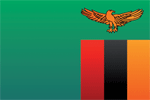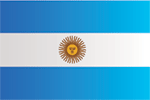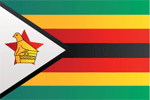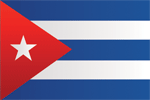Five countries (besides Greece) that have stiffed the IMF
Hector Reid looks at the other countries to have stuck two fingers up at one of the world’s most respected financial institutions
Get the latest financial news, insights and expert analysis from our award-winning MoneyWeek team, to help you understand what really matters when it comes to your finances.
You are now subscribed
Your newsletter sign-up was successful
Want to add more newsletters?

Twice daily
MoneyWeek
Get the latest financial news, insights and expert analysis from our award-winning MoneyWeek team, to help you understand what really matters when it comes to your finances.

Four times a week
Look After My Bills
Sign up to our free money-saving newsletter, filled with the latest news and expert advice to help you find the best tips and deals for managing your bills. Start saving today!

Last night, the Greek government invoked an obscure clause from the 1970s to get out of a €305m debt repayment to the International Monetary Fund.
Rather than pay up today, Athens has chosen to settle its debts for June €1.5bn in a lump sum at the end of the month.
The country is technically within its rights, says Ambrose Evans-Pritchard in The Daily Telegraph. But "it is the first time that a developed country has ever missed a payment to the IMF since the creation of Bretton Woods institutions [of which the IMF is one] at the end of the Second World War."
MoneyWeek
Subscribe to MoneyWeek today and get your first six magazine issues absolutely FREE

Sign up to Money Morning
Don't miss the latest investment and personal finances news, market analysis, plus money-saving tips with our free twice-daily newsletter
Don't miss the latest investment and personal finances news, market analysis, plus money-saving tips with our free twice-daily newsletter
That gives Greece the dubious honour of being the first developed country in over 70 years to miss an IMF payment.
But who else has stuck two fingers up at one of the world's most respected financial institutions?
Zambia

It didn't end well. Struggling to service over $800m in debt arrears, and forced by the IMF to abandon subsidised food prices and devalue its currency, the country was wracked by urban riots and strikes in the middle of the decade.
Its funding agreement with the IMF fell apart in 1987.
Argentina

Most famous of all was the crisis of the early 2000s, when South America's second-largest economy defaulted on around $100bn in external debt.
In 2003, it defaulted on a $2.9bn IMF payment though the IMF ultimately made some concessions and a debt restructure was agreed.
Zimbabwe

three countries currently in arrears to the IMF
$80m
Last September, the IMF sent Zimbabwe a stark ultimatum catch up with overdue payments or you're not getting any more money.
Sudan

$975m
Sudan has been in arrears on its payments to IMF since 1984 (on debt going back to the 1970s), making it one of the IMF's oldest borrowers and in 1986 the country was declared ineligible to receive any more cash.
Cuba

But when Fidel Castro seized power in 1959, repayment of IMF loans taken out under the previous Batista government was repeatedly postponed and interest racked up until a full five years later, 1964, when Cuba decided to give up its IMF membership.
Was that it for Cuba's debt repayments? Not exactly.Castro's government went on to pay off the country's entire IMF debt including all interest charges.
Get the latest financial news, insights and expert analysis from our award-winning MoneyWeek team, to help you understand what really matters when it comes to your finances.
Hector Reid is a freelance writer, editor and content designer for financial companies. He has a Bachelor in Arts from the University of Manchester. Hector shares his expertise in funds and the economy.
-
 Should you buy an active ETF?
Should you buy an active ETF?ETFs are often mischaracterised as passive products, but they can be a convenient way to add active management to your portfolio
-
 Power up your pension before 5 April – easy ways to save before the tax year end
Power up your pension before 5 April – easy ways to save before the tax year endWith the end of the tax year looming, pension savers currently have a window to review and maximise what’s going into their retirement funds – we look at how